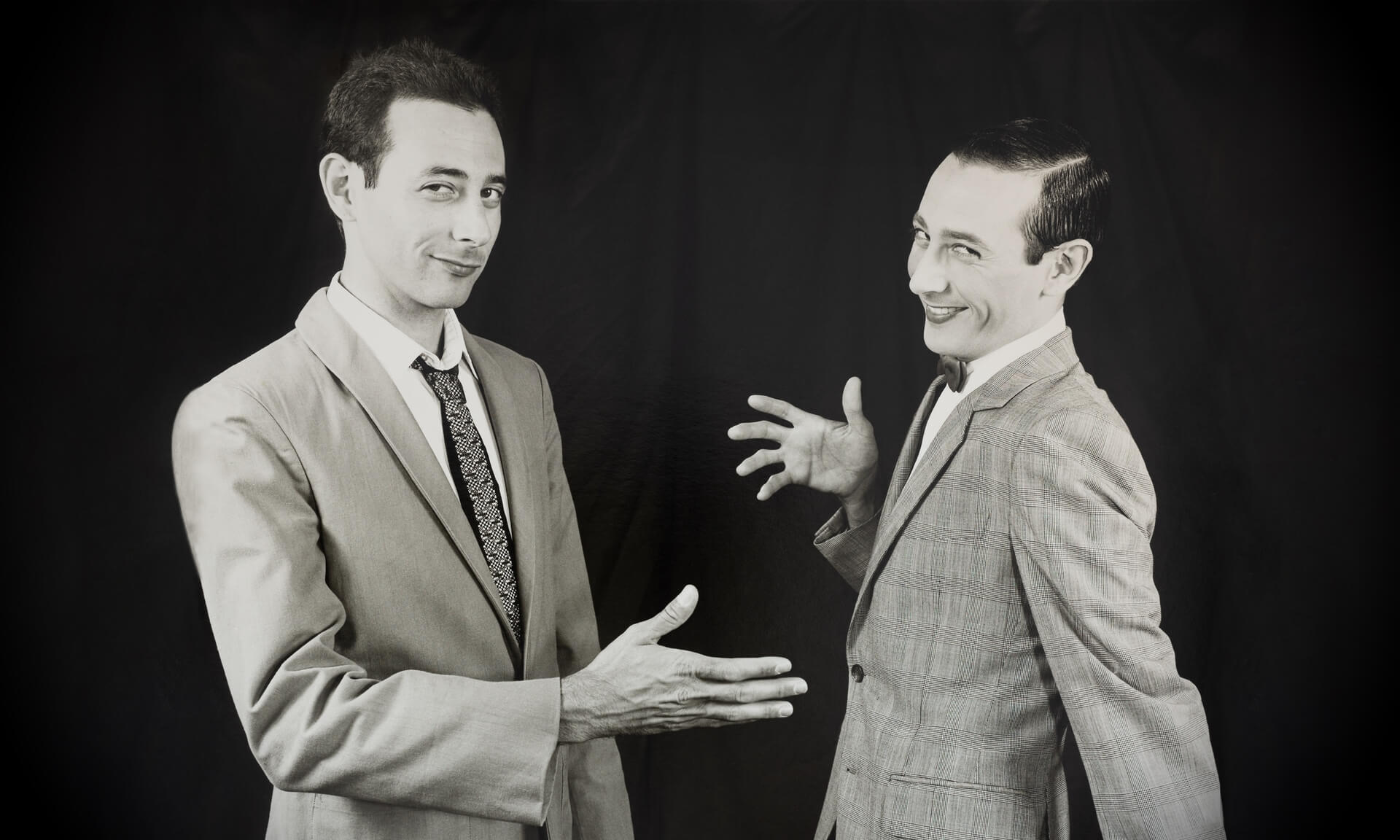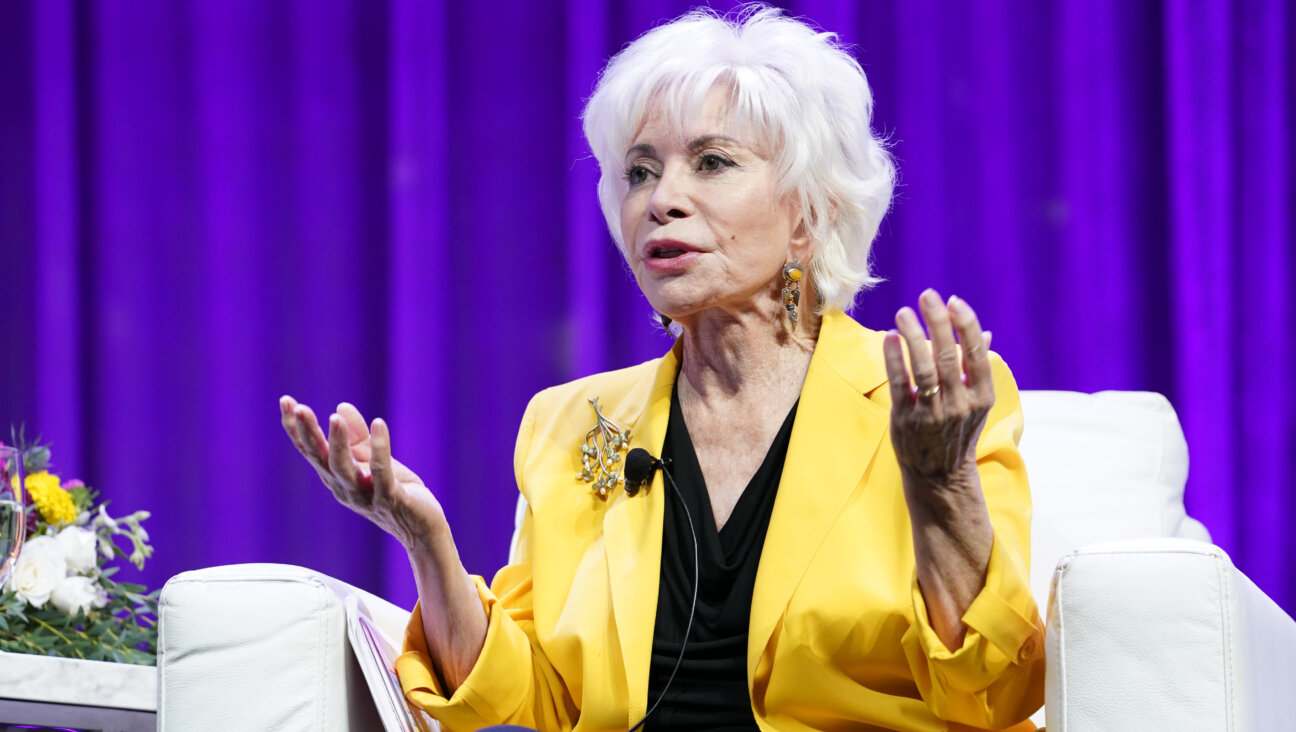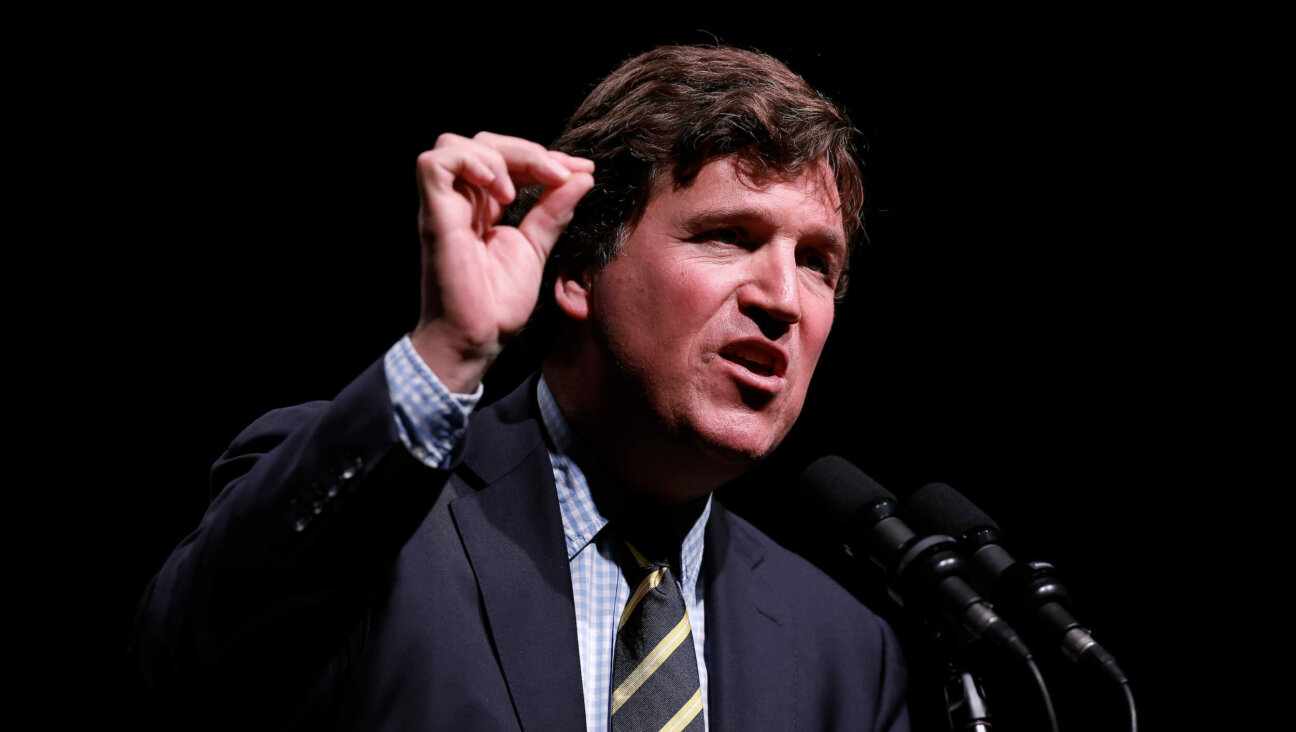‘Pee-wee as Himself’ reveals the real Paul Reubens
The actor behind the iconic manchild was fiercely private — but spoke up to clear his name

Paul Reubens (L) reaches out to shake the hand of his alter ego, Pee-wee Herman. Photo by Dennis Keeley/HBO
In a sense, the laudatory, exculpatory and often adversarial two-part documentary tribute to the late actor Paul Reubens, is a final insult. Not because of its content, but its title.
The name Pee-wee as Himself highlights a crucial insecurity and paradox of the performer: That Reubens, for all his Garbo-esque desire for privacy, was jealous of the creation that allowed for his anonymity. Calling the film after Pee-wee Herman admits that his real name (itself de-Judaized from Rubenfeld) is not recognizable enough to sell his story.
“People didn’t know that Paul Reubens was me,” Reubens tells director Matt Wolf of his writing credit for Pee-wee’s Big Adventure, the 1985 sleeper hit that launched the title character beyond San Francisco’s Roxie Theater, Home Box Office and early Late Night with David Letterman. “Do I feel shortchanged about it? I don’t know, do I seem bitter and angry and upset? Yeah, a little.”
It’s more than a little. It’s a leitmotif, coming up again when Pee-wee — not Paul — gets a star on the Hollywood Walk of Fame, a proof of cultural visibility so kitschy it couldn’t help but be a lifetime goal for Reubens.
After setting the tetchy terms of Reubens’ expectations, the film starts with the subject’s childhood in Oneonta, New York and Sarasota, Florida (the summer home of Ringling Bros.). The son of a macho stunt pilot who helped found the Israeli Air Force, Reubens came of age in the heyday of Howdy Doody and I Love Lucy and would press neighborhood kids into service for performances on a stage in his basement.
While somewhat enlightening — and necessary — the early TV DNA of Pee-wee’s Playhouse was never really in doubt. More revelatory is how Reubens, as a young adult committed to performance art and experimental storytelling, was always slipping in and out of character and different forms of drag. As has already been reported, Reubens comes out as gay in the documentary, though he also tells Wolf this confession was forced and bogus, the result of being deprived of food and drink: “If I said I was gay, I knew I could leave earlier.”
Reubens sat down for 40 hours of interviews — while secretly battling cancer — before he stopped cooperating. The troves of photos, video and access to family and friends that he provided allow for the film’s existence, and they should be a marvel to devotees. But Reubens is conflicted in handing them off to another party’s final cut.
While he’s best known for playing an anarchic sprite, Reubens split his persona to exercise a maniacal amount of control.
“I felt a freedom in having an alter ego,” he says. “I just went, ‘Oh I did create this thing that I can hide behind.’”
Reubens was managing Pee-wee’s career and personal appearances while he slipped away to his own wonderland — a home in Los Feliz surrounded by bobcats, pheasants and deer. That bucolic space mirrors the onscreen playhouse, whose stop motion intro, with its own claymation fauna, Reubens meticulously edited.
It’s immediately clear that Reubens is not ready to hand over the reins to his own narrative. It’s no mystery as to why, and it likely figures into his resentment of Pee-wee. The film may have a pretense of revealing Paul Reubens, himself, to the world, but the reason for breaking character comes down to decades of character assassination.
When Reubens’ name became better known, it was attached to his mugshot, after he was arrested in 1991 and accused of masturbating at an adult movie theater. (He pleaded no contest, mostly to not protract the case — he maintained he never exposed himself.)
The scandal shattered his anonymity, and, not long after his reputation was rehabilitated, Reubens was accused in 2002 of possessing child pornography, a charge, the film argues convincingly, that was baseless but nonetheless dogged Reubens for the rest of his days, even as Pee-wee saw a renaissance in the 2010s.
In a heartbreaking coda, we hear Reubens, a day before his 2023 death, state that he participated in the documentary to clear his name.
And yet the filmmakers picked the name Pee-wee for the endeavor.
I can’t escape the feeling that it is a misnomer, that the one-to-one identification of the man and the character is misguided, that Pee-wee is — in fact — the more knowable of the two.
Maybe that’s the point: that to pull back the curtain we need to start with the public face. That for all Reubens’ efforts, and his striving to co-direct, his story was always for someone else to tell.
“You don’t have perspective, really, on yourself,” Reubens says in the opening moments, quoting what others have told him. He doesn’t agree, petulantly arguing a la Pee-wee.
But the eternal existential question here applies: I know you are, but what am I? We can never answer for ourselves.
The two-part documentary Pee-wee as Himself debuts May 23 on HBO Max.





















